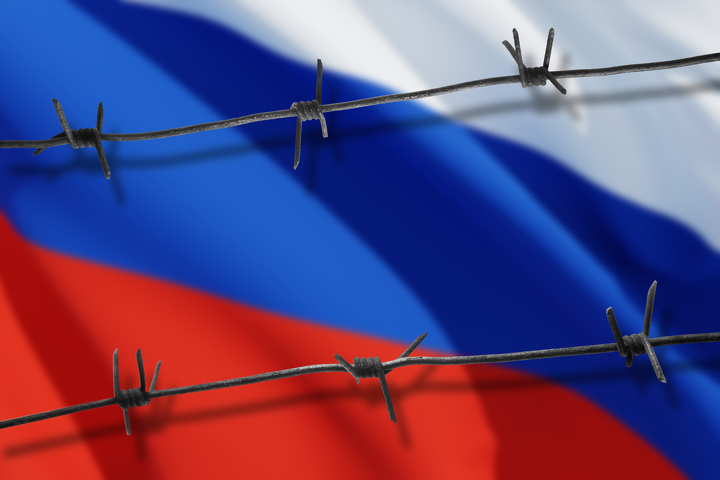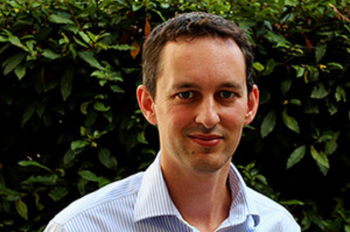Why is the UK Director for sanctions coming to Kazakhstan?

On April 24, British Director for Sanctions David Reed arrives in Kazakhstan. The trip takes place, as it was announced officially, "as part of the bilateral dialogue between the UK and Kazakhstan on sanctions and more advanced bilateral cooperation." David Reed is coordinating his visit with EU and US sanctions officials.
David Reed was appointed as Director for Sanctions at the Foreign, Commonwealth and Development Office in 2022. He joined the Foreign, Commonwealth and Development Office in 2003, having previously worked as a lawyer in the City of London. He also worked in Ottawa as Deputy High Commissioner to Canada, covering foreign policy, trade and climate issues.
Reed had diplomatic postings to Cyprus where he worked on the settlement negotiations; and to France, where he was responsible for Justice and Home Affairs cooperation; as well as to Poland. In 2016 he received an MBE for his crisis management work.
Forbes.kz took an exclusive interview with Mr. Reed ahead of his visit to Kazakhstan.

F: The official announcement of your visit says that you are "coordinating your visit with representatives of the EU and the US on sanctions". What exactly does this "coordination" mean?
- We are working very closely, alongside our international partners, to do all we can to support Ukraine and bring an end to this war. To tackle circumvention of sanctions, we are taking steps domestically to tighten our sanctions regime and increase enforcement. We are also working closely with the US and EU to disrupt [Russia’s president Vladimir] Putin’s attempt to circumvent our sanctions via third countries. In addition to Kazakhstan we are also co-ordinating engagement with Kyrgyzstan and Uzbekistan this week.
F: The news about your visit was published in the Kazakh media, including on the Forbes.kz website in April. I read the comments of Kazakhstanis on social networks to this news - many people are concerned and alarmed. Do you think Kazakhstanis really have a reason to worry about your visit? Is there a threat that the West may impose sanctions on Kazakhstan as well?
- I want to be very clear that we consider Kazakhstan an important bilateral partner. We are a top 10 investor in Kazakhstan, have a wide-ranging relationship dating back decades. We look to sign the Strategic Partnership and Cooperation Agreement in the future which will further deepen our partnership. Our Foreign Secretary recently came to Kazakhstan for a wide-ranging visit and we look forward to further high level engagements in the future. We want to work together with Kazakhstan to bring an end to a war that is causing untold suffering to so many innocent people and having a destructive impact far beyond the borders of Russia and Ukraine.

Xi Jinping's Radioactive Friend
Vladimir Putin’s ongoing failure in Ukraine has put his strategic alliance... →
F: In your opinion, is Kazakhstan now helping to partially circumvent the anti-Russian sanctions of the European Union and the United States? If so, how does this happen? Please give specific examples and facts.
- There are a broad coalition of countries who have introduced sanctions since Russia invaded Ukraine. These are not anti-Russian sanctions. Sanctions are being carefully targeted to maximise impact on Putin’s ability to wage war while minimising any unintended consequences on those not responsible for the war. This includes the Russian people as well as of course Kazakhstan. At the moment we are trying to build a clearer picture of how Putin is attempting to circumvent our sanctions. We are here to discuss our analysis and share information with the Kazakh Government.
F: Do you have any evidence that sanctioned goods are coming from Kazakhstan to Russia under the guise of "permitted" goods? If so, please tell us what kind of product it is, how does it pass through Kazakhstan, who is involved in the supply chains?
- It is evident from open source trade data that there are some very significant spikes of UK-sanctioned goods being exported to Kazakhstan, with corresponding spikes of these same goods to Russia. We know that some of these goods are ending up on the battlefield in Ukraine. We believe that neither the UK nor Kazakhstan want this to be the case.
F: How do you track such schemes?
- As above, where we mention open source data.
F: How do you assess the actions of the government of Kazakhstan to prevent the circumvention of anti-Russian sanctions?
- We welcome the repeated assurances of the Kazakh Government that they do not wish to be a backdoor to circumvent sanctions. We are here to learn more about the steps the Kazakh Government is taking to prevent this from being the case.

Will the Ukraine War Revive the WTO?
Russia’s invasion of Ukraine has heightened everyone’s appreciation of glob... →
F: Kazakhstan and Russia have the longest continuous land border in the world. Both countries are closely linked economically, the countries do not have a customs border. The leaders of both countries have friendly contacts. And Kazakh business is very active and knows how to make money. Already, the shelves of Russian stores are littered with goods from companies that left Russia after the start of the war in Ukraine, and this product also comes from Kazakhstan. Is it realistic, under such conditions, to completely avoid the flow of sanctioned goods from Kazakhstan to Russia?
- We fully recognise that Russia and Kazakhstan and are deeply economically intertwined and we are not asking Kazakhstan to isolate economically from Russia. However, it is in both our interests to ensure that Russia is not getting hold of goods that enable them to perpetuate the war. We want to work with the Kazakh Government to make sure Kazakhstan is not becoming a circumvention hub.
F: You've probably heard that officials call Kazakhstan's foreign policy "multi-vector." This means, among other things, that official Astana strives to build friendly relations with all neighbours and the whole world. And what, in your opinion, should be the policy of Kazakhstan so that it would not simultaneously anger the Kremlin and suit the West, which applied sanctions to Russia?
- I am not here to suggest to the Kazakhstan Government how they manage their international relationships. I am delighted that we are able to work in partnership and I believe that we have a shared objective of putting an end to this war that is doing untold damage not just to Ukraine but to Russia’s near neighbourhood and beyond.
F: How would you describe in one word the message that you want to convey to Kazakhstan with your visit? Could it be a "warning," "alarm," "threat," "cooperation," "hope," or something else?
- Suggest “partnership”.

